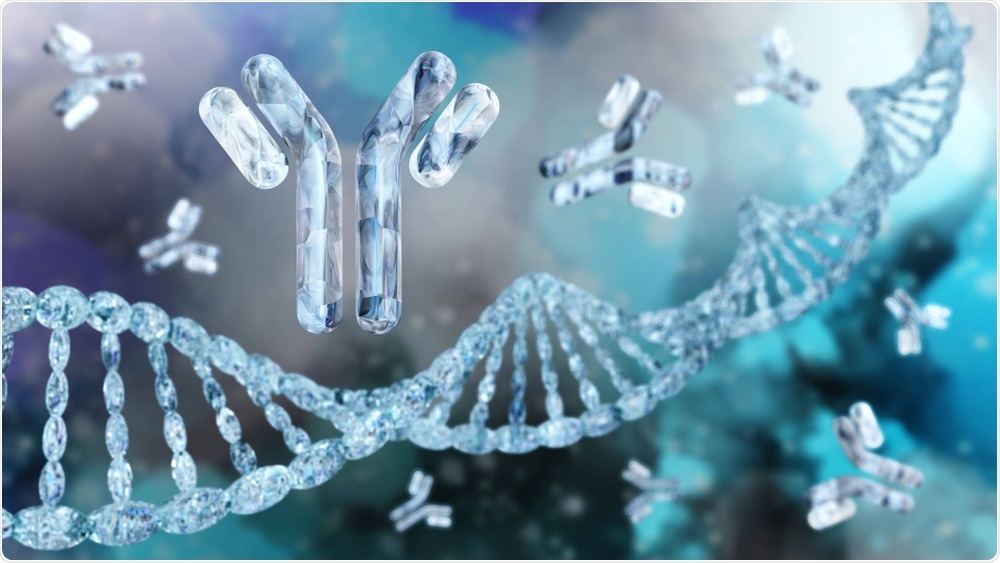The coronavirus disease 2019 (COVID-19) has posed the greatest threat to 'at-risk' individuals, such as the elderly, chemotherapy patients, or the immunocompromised. While in some countries, mass vaccination schemes, repurposed drugs, and monoclonal antibody treatments are beginning to push the disease back, worries remain.
Severe acute respiratory syndrome coronavirus 2 (SARS-CoV-2) variants of concern, such as the Delta variant, are known to infect even vaccinated individuals and still remain transmissible. In order to investigate the protection offered to immunocompromised individuals by messenger ribonucleic acid (mRNA) vaccines, researchers from the University of Pennsylvania explore the germinal cell responses in both healthy individuals and kidney transplant patients in their recent study published on the preprint server medRxiv*.
 Study: Germinal center responses to SARS-CoV-2 mRNA vaccines in healthy and immunocompromised individuals. Image Credit: ustas7777777 / Shutterstock.com
Study: Germinal center responses to SARS-CoV-2 mRNA vaccines in healthy and immunocompromised individuals. Image Credit: ustas7777777 / Shutterstock.com

 This news article was a review of a preliminary scientific report that had not undergone peer-review at the time of publication. Since its initial publication, the scientific report has now been peer reviewed and accepted for publication in a Scientific Journal. Links to the preliminary and peer-reviewed reports are available in the Sources section at the bottom of this article. View Sources
This news article was a review of a preliminary scientific report that had not undergone peer-review at the time of publication. Since its initial publication, the scientific report has now been peer reviewed and accepted for publication in a Scientific Journal. Links to the preliminary and peer-reviewed reports are available in the Sources section at the bottom of this article. View Sources
An overview of mRNA vaccine technology
The mRNA vaccines provide the mRNA of the virus to the vaccinated individual. Through this approach, the mRNA, which encodes for specific epitopes, relies on the hosts’ cell machinery to express these epitopes. The immune system can subsequently learn to recognize these antigens with no risk of infection.
Memory B-cells that can quickly create antibody-secreting plasma cells. Both memory B-cells and antibody-secreting plasma cells are generated during germinal center (GC) reactions in the lymph nodes.
In these reactions, B-cells that have been exposed to the pathogen go through somatic hypermutation to create B-cells with a high affinity to specific antigens, which then differentiate into memory B cells or plasma cells. Taken together, mRNA vaccines have been shown to be very effective at stimulating these GC reactions. Unfortunately, these reactions are inhibited in immunocompromised patients.
About the study
The researchers of the current study used a fine-needle aspiration, which involves the collection of a biopsy to gather a small amount of liquid, to collect samples and evaluate the GC responses to mRNA vaccines in healthy donors and kidney transplant patients. Samples were collected from 15 health patients prior to vaccination, two weeks after first immunization, and eight days after second immunization.
Severe acute respiratory syndrome coronavirus 2 (SARS-CoV-2) specific antibodies were found to be significantly boosted following both doses. More specifically, B-cells capable of binding both the full spike protein and those that could bind the receptor binding domain (RBD) of the S1 subunit of the spike protein were identified. The RBD is essential to SARS-CoV-2 pathogenicity, as it binds to angiotensin-converting enzyme 2 (ACE2) receptor to allow viral entry to the cell.
Unfortunately, similar results were not seen in kidney transplant patients. The scientists managed to find 13 individuals who initially consented to participate in the study. One withdrew consent, and two more dropped out due to failure to collect samples and insufficient cells for analysis.
Cell recovery yield was much slower in these individuals, and large populations of B-cells were completely missing. While the scientists detected small amounts of anti SARS-CoV-2 B-cells following vaccination in this patient population, there was not nearly enough to provide immunity.
There was an abject failure of GC B-cell responses. Memory cells against SARS-CoV-2 were found; however, they were again insufficient for adequate immunity. Even T-cell responses were muted, another factor not seen in health patients.
Conclusion
The authors highlight the significance of their data with regards to immunocompromised patients and those taking immunosuppressant drugs. The suboptimal vaccine response is supported by studies investigating previous vaccines for viruses such as influenza.
This study could be highly beneficial in informing public health policy, especially policies regarding hospitals and nursing homes where immunocompromised patients are likely to be found. As restrictions are lifting, these individuals are more and more at risk of infection, especially as the boundaries for population immunity against the Delta variant are far higher than against the original strain found in Wuhan.

 This news article was a review of a preliminary scientific report that had not undergone peer-review at the time of publication. Since its initial publication, the scientific report has now been peer reviewed and accepted for publication in a Scientific Journal. Links to the preliminary and peer-reviewed reports are available in the Sources section at the bottom of this article. View Sources
This news article was a review of a preliminary scientific report that had not undergone peer-review at the time of publication. Since its initial publication, the scientific report has now been peer reviewed and accepted for publication in a Scientific Journal. Links to the preliminary and peer-reviewed reports are available in the Sources section at the bottom of this article. View Sources
Journal references:
- Preliminary scientific report.
Lederer, K., Parvathaneni, K., Painter, M. M., et al. (2021) Germinal center responses to SARS-CoV-2 mRNA vaccines in healthy and immunocompromised individuals. medRxiv. doi:10.1101/2021.09.16.21263686. https://www.medrxiv.org/content/10.1101/2021.09.16.21263686v1
- Peer reviewed and published scientific report.
Lederer, Katlyn, Emily Bettini, Kalpana Parvathaneni, Mark M. Painter, Divyansh Agarwal, Kendall A. Lundgreen, Madison Weirick, et al. 2022. “Germinal Center Responses to SARS-CoV-2 MRNA Vaccines in Healthy and Immunocompromised Individuals.” Cell, February. https://doi.org/10.1016/j.cell.2022.01.027. https://www.cell.com/cell/fulltext/S0092-8674(22)00138-6.